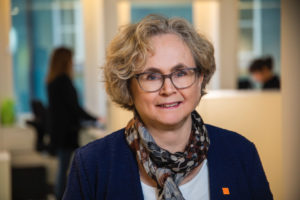IFLA/UNESCO Public Library Manifesto Webinar
Since 1949, the IFLA/UNESCO Public Library Manifesto has supported libraries worldwide. To provide an up-to-date and relevant picture of the role and mission of public libraries, the manifesto has been revised a number of times, and in July 2022 the latest version was launched in Dublin (IFLA WLIC, 87th World Library and Information Congress). The aim is for the manifesto to reflect the role and activities of libraries in the light of overall societal and technological changes. With the manifesto, UNESCO wants to express its confidence in the public library as a living source of education, culture and information and as an important player in people’s quest for peace and spiritual development.
The updated manifesto emphasizes the role of public libraries in sustainable development, by being places for the exchange of information and culture, and because they contribute to strengthened community involvement.
Libraries are linked to democratic development, by describing inclusion, accessibility and participation, not least for marginalized groups, as central values.
Public libraries importance for society’s overall development of knowledge is also emphasized, for example through the role of public libraries as places for everyone’s right to information and efforts linked to digital participation and increased media and information literacy.
What does the updated manifesto mean in a Swedish and Norwegian context?
We welcome you to participate in a webinar arranged by IFLA’s Public Libraries Section, where we discuss a number of key issues:
- How can the manifesto be a support for the legitimation of the public library in the local community?
- How can one work with the manifesto at the national and international level?
- How does the manifesto affect the profession and public library institution?
The webinar has now taken place, but you can watch it back via our You Tube channel
Participants:

Vidar Lund. Chairman of the Norwegian Library Association, with extensive experience from the public library sector at local and regional levels.

Jenny Nilsson. Senior Analyst at the Swedish Library Association with, among other things, responsibility for IFLA-matters and Nordic cooperation.

Ola Pilerot. Professor of Library and Information Science at the University of Borås.
Xianhong Hu. UNESCO Program Specialist, representing the Information for All Program Secretariat
Host:
IFLA Public Libraries Section through Martin Memet Könick (Library Director, City of Landskrona), Elin Golten (Head of Section for Library Development, Vestland County Council) and Peter Björkman (Unit manager, Umeå city library).